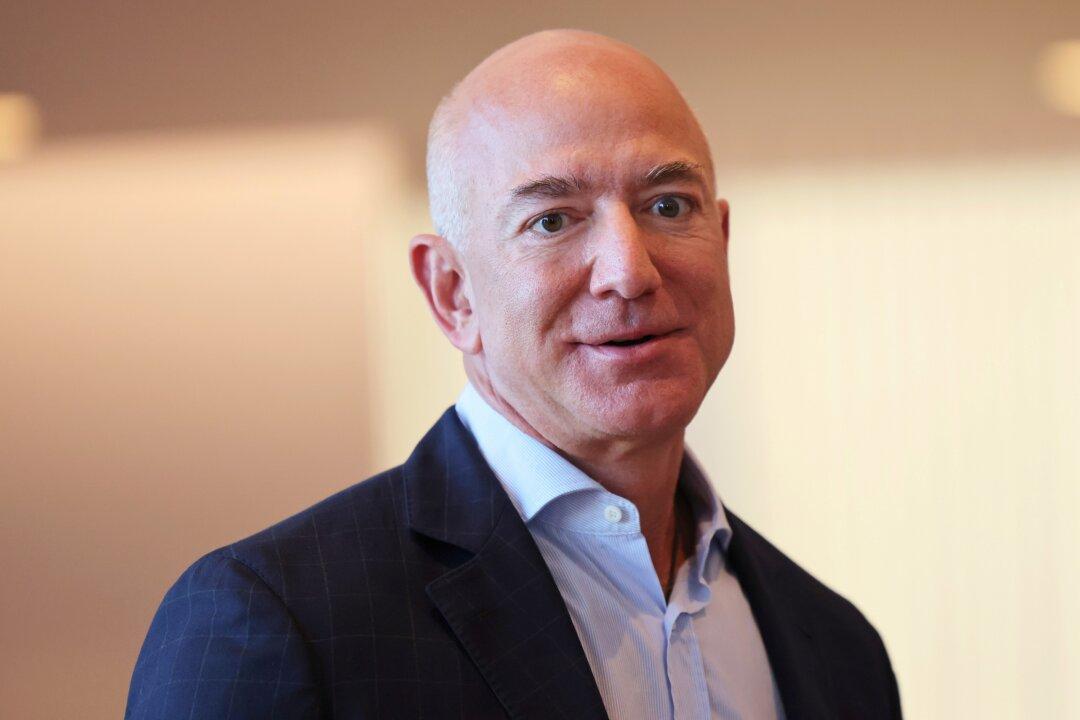Amazon founder Jeff Bezos has joined the ranks of corporate leaders who are sounding the alarm on the U.S. economy, warning of turbulence ahead as recession risks rise.
In an Oct. 19 tweet, Bezos shared footage of Goldman Sachs CEO David Solomon predicting more market volatility in the pipeline and warning it’s likely the U.S. economy will tip into a recession.





